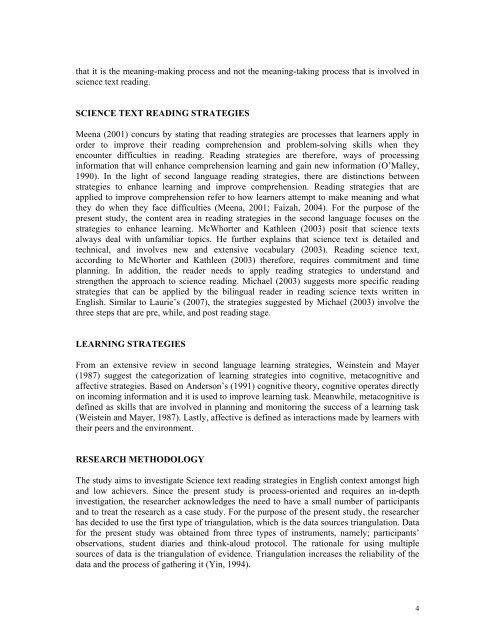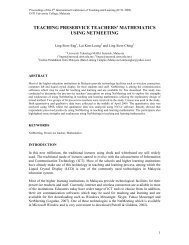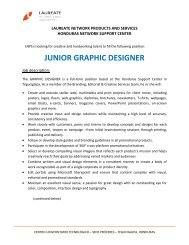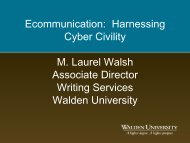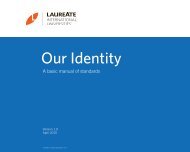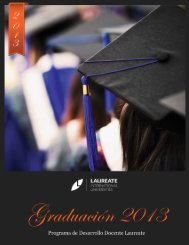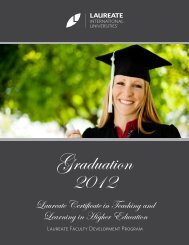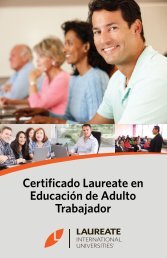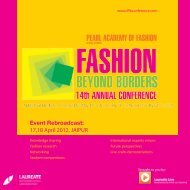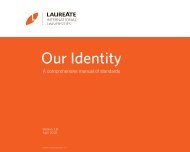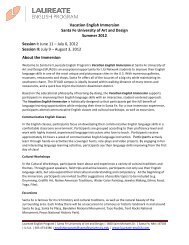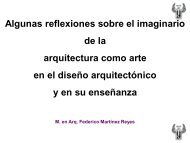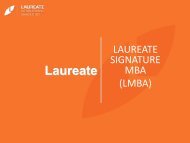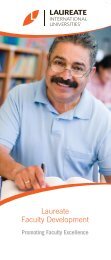3A-02-P88 (Malaysia) - My Laureate
3A-02-P88 (Malaysia) - My Laureate
3A-02-P88 (Malaysia) - My Laureate
Create successful ePaper yourself
Turn your PDF publications into a flip-book with our unique Google optimized e-Paper software.
that it is the meaning-making process and not the meaning-taking process that is involved inscience text reading.SCIENCE TEXT READING STRATEGIESMeena (2001) concurs by stating that reading strategies are processes that learners apply inorder to improve their reading comprehension and problem-solving skills when theyencounter difficulties in reading. Reading strategies are therefore, ways of processinginformation that will enhance comprehension learning and gain new information (O’Malley,1990). In the light of second language reading strategies, there are distinctions betweenstrategies to enhance learning and improve comprehension. Reading strategies that areapplied to improve comprehension refer to how learners attempt to make meaning and whatthey do when they face difficulties (Meena, 2001; Faizah, 2004). For the purpose of thepresent study, the content area in reading strategies in the second language focuses on thestrategies to enhance learning. McWhorter and Kathleen (2003) posit that science textsalways deal with unfamiliar topics. He further explains that science text is detailed andtechnical, and involves new and extensive vocabulary (2003). Reading science text,according to McWhorter and Kathleen (2003) therefore, requires commitment and timeplanning. In addition, the reader needs to apply reading strategies to understand andstrengthen the approach to science reading. Michael (2003) suggests more specific readingstrategies that can be applied by the bilingual reader in reading science texts written inEnglish. Similar to Laurie’s (2007), the strategies suggested by Michael (2003) involve thethree steps that are pre, while, and post reading stage.LEARNING STRATEGIESFrom an extensive review in second language learning strategies, Weinstein and Mayer(1987) suggest the categorization of learning strategies into cognitive, metacognitive andaffective strategies. Based on Anderson’s (1991) cognitive theory, cognitive operates directlyon incoming information and it is used to improve learning task. Meanwhile, metacognitive isdefined as skills that are involved in planning and monitoring the success of a learning task(Weistein and Mayer, 1987). Lastly, affective is defined as interactions made by learners withtheir peers and the environment.RESEARCH METHODOLOGYThe study aims to investigate Science text reading strategies in English context amongst highand low achievers. Since the present study is process-oriented and requires an in-depthinvestigation, the researcher acknowledges the need to have a small number of participantsand to treat the research as a case study. For the purpose of the present study, the researcherhas decided to use the first type of triangulation, which is the data sources triangulation. Datafor the present study was obtained from three types of instruments, namely; participants’observations, student diaries and think-aloud protocol. The rationale for using multiplesources of data is the triangulation of evidence. Triangulation increases the reliability of thedata and the process of gathering it (Yin, 1994).4


